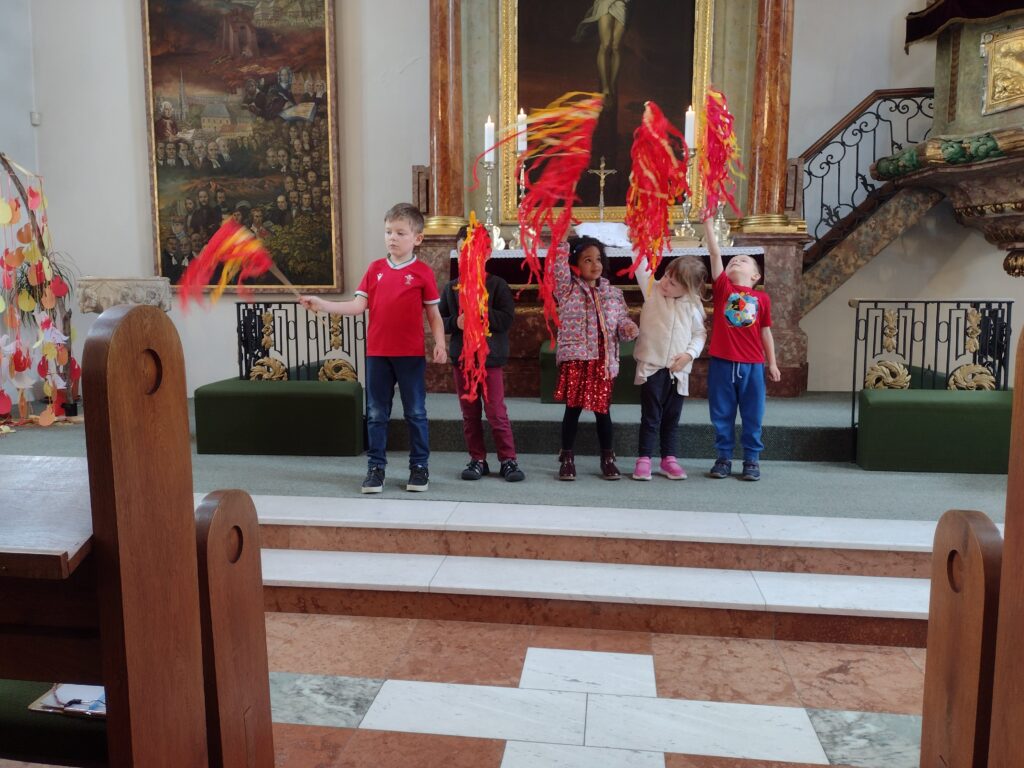Today’s author is Naomi Sveholm. Naomi is a missionary with Central Europe Teachers (https://www.facebook.com/elcacet) teaching English at a bilingual Lutheran high school in Bratislava, Slovakia with her spouse and two children.

Pentecost at Bratislava International Church is accompanied by the children of the church running through the aisles with fire-colored streamers on a stick and whacking people (mostly gently) with those sticks. They sing: Pentecost, pentecost, this is what it means. The Holy Spirit will fall on you and you will be made new. (they sing to the tune of Jingle Bells, in case you wanted an earworm today)
Many depictions of the Holy Spirit are peaceful and gentle, or at least pastoral. Doves soar and alight; rays of light are non-corporeal; breath fills and sustains; and Jesus refers to the spirit as a helper, comforter, and advocate.
But Pentecost is actually wild and disorienting, not tidy and peaceful. The Spirit in this week’s text is a violent wind and tongues of fire that inspire the chaos of many languages at once.
There is danger to oversimplifying a complex being. Even children learn to codeswitch, using different language, behaviors, and formality in various social situations. It is not (usually) a repression of who they are, but an expression of various aspects of their identities. In some situations we need peace, others we need a rebuke, and still others support to face challenges. The Spirit is both gentle and powerful.
So often we want clarity, control, and predictability, but the Spirit gives us mystery, movement, and mission. Pentecost invites us into a deeper, riskier faith—not just belief, but transformation and newness. Efforts to tame the Spirit fall short of a reality too great to fathom.
I, for one, hope the Spirit does not fit into a box of my human imagination.
Come, Holy Spirit, and bring us your wind and fire, your peace and chaos. Make us new and fill us with your wild and holy joy.
In Jesus’ name we pray. Amen